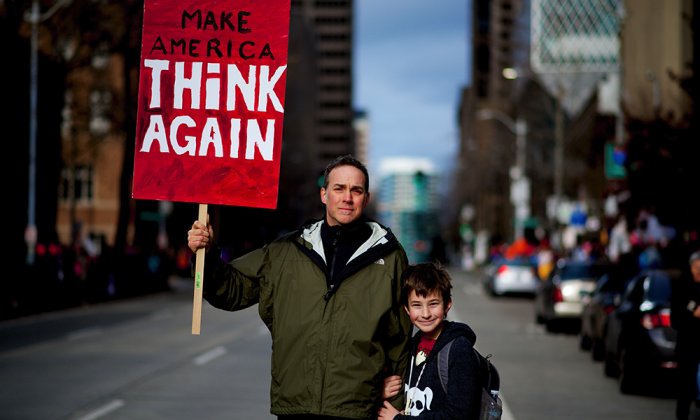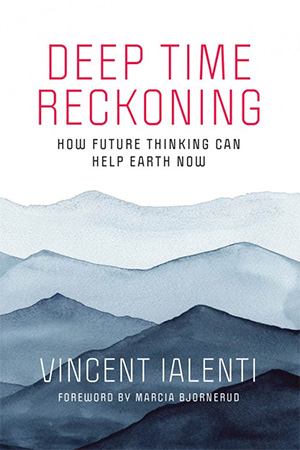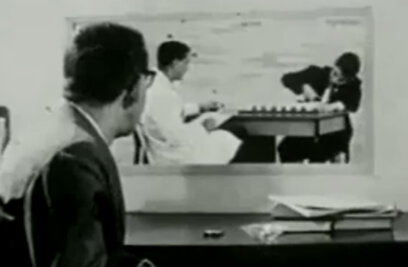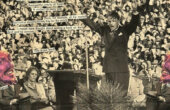What’s Behind the U.S. War on Science?

In U.S. President-elect Joe Biden’s victory speech last November, he vowed his administration would “marshal the forces of science” to take bold action against climate change and the pandemic. Describing his election as a “great day” for American educators, he drafted a national coronavirus strategy with a clear mandate: “Listen to science.”
Biden, now halfway through his first year as president, has mostly followed through. He appointed a leading geneticist as his top science adviser and elevated his role to the Cabinet rank. He established a new position — deputy director for science and society at the Office of Science and Technology Policy — and filled it with a renowned sociologist. He reengaged the World Health Organization and issued a detailed pandemic plan focused on health equity and higher vaccination rates. He rejoined the Paris Climate Agreement and set an ambitious target for reducing greenhouse gas emissions by around 50 percent by 2030.

This all broke with his predecessor. Under former President Donald Trump, more than two-thirds of scientists across 16 federal agencies reported that hiring freezes and departures interfered with their work. Federal funding was cut for expertise on matters ranging from invasive insect risk to the effects of chemicals on pregnant women. The White House attempted to undermine the National Climate Assessment and even sent a “cease and desist” order to a top National Park Service scientist for testifying to Congress about climate change. The Trump administration moved coronavirus data collection away from the Centers for Disease Control and Prevention, and downplayed the seriousness of the pandemic.
Biden has a historic opportunity to reverse Trump’s regressive science policies. Yet to achieve a more fundamental change in how American political culture approaches science, Biden has to go further to confront an unsettling reality: Current suspicions of science did not begin with the election of one man in 2016. They have often been symptomatic of frustrations and critiques that gained relevance decades prior to Trump’s inauguration, leading many critics to write off scientists as just another untrustworthy, out-of-touch group of elites.
In my new book, “Deep Time Reckoning,” I refer to this as a “deflation of expertise.” To understand its origins, I first had to leave my home country and experience everyday life in a society that approaches scientific and other forms of expertise differently: Finland. Reflecting on these contrasts can reveal some of the societal disillusionments that fueled Trump’s war on science — and help the U.S. move beyond them.
From 2012 to 2014, I lived in Helsinki. I was conducting anthropological fieldwork among experts developing what will likely become the world’s first deep geological repository for high-level nuclear energy waste. I often asked these experts how Finland was able to keep so closely to the disposal schedules it set back in the early 1980s. The United States’ now-defunct nuclear repository project at Yucca Mountain had, in contrast, been stymied by decades of fierce litigation, political stagnation, and scientific uncertainty.
The Finnish experts attributed their project’s comparatively smooth rollout to Finland’s broad public trust in the competence of their domestic engineers, technocrats, and scientists.
In recent decades, moral and religious critiques of science have fueled the growth of an anti-elite fervor against scientists and other experts, especially among conservatives.
Finns from many walks of life told me of their country’s fondness of large, centralized, hierarchical organizations like public transport systems, government ministries, and the welfare state. They pointed me toward polls casting Finland as unique in its high levels of trust in its domestic civil servants, police officers, educators, journalists, and scientists. For sure, I met Finns who did not fit neatly with these generalizations. But on the whole, my findings lined up with the conclusions of Finnish social scientists: Finns generally “count on expertise, technology, and authorities.”
When I returned to home in August 2014, my mild reverse culture shock revealed Finland’s approach to expertise to be a world apart from the United States’.
Without realizing it at first, I found myself continuing my field research — but now it was the U.S. that looked unfamiliar. I asked my compatriots about trust in science while living in Upstate New York, then in Washington D.C., and when visiting my hometown in Central Massachusetts. I encountered a deep suspicion of experts that, in Finland, would have seemed almost paranoid.
American distrust of science is not new. Yet in recent decades, moral and religious critiques of science have fueled the growth of an anti-elite fervor against scientists and other experts, especially among conservatives. Why?
Some Americans I met told me how their trust in high-ranking military leaders had been shaken when the U.S. invaded Iraq in 2003 based on false pretenses about weapons of mass destruction. Others told me that their trust in economists had been damaged after the 2007–2008 global financial crisis. Still others expressed that their trust in Silicon Valley had given way to concerns about digital privacy losses, big data cybersecurity hacks, and U.S. National Security Agency surveillance.
After multiple breaches of public trust by powerful state institutions and trained experts, some people felt that suspicion of any kind of person in an elite position seemed reasonable. A trust gap was widening between the general public and elites.
Come the 2016 election, all sorts of claims to expert authority were written off as mere pompous elitism. Right-wing populists clamored loudly against technocrats, globalists, and the deep state. The Trump administration openly questioned established science on topics ranging from climate change to human evolution.
Meanwhile, deluges of online misinformation left millions of Americans — on both the political left and right — siloed in algorithmically generated, increasingly extreme social media echo chambers.
But the reasons behind this intensification of anti-science political fervor, especially among conservatives, the majority of whom are White people, are complex and multifaceted.
Only 27 percent of Republicans — compared to 43 percent of respondents who are or lean Democrat — report “a great deal” of confidence in the scientific community as a whole.
Biden faces a grand challenge: regaining trust in science among those who have lost faith in expertise itself.
I will focus on a few that I see as particularly relevant to the intensification of anti-elitism in the U.S. For one thing, some White Americans have had to reckon with a crumbling American Dream. Over the past two decades, working-class White people have seen decreased life expectancies and increased rates of suicide and opioid overdoses. Meanwhile, middle-class White males’ wages have stagnated or, in some cases, declined.
These economic changes, alongside other factors, have led some conservatives to feel that “establishment” institutions—not just in media and government, but also in science and technology—have abandoned them. Some also say they’ve lost faith in the country’s higher education system. According to a 2017 Gallup poll, Republican or Republican-leaning voters tend to be concerned that these institutions are “too liberal/political” and don’t allow students to “think for themselves.” Some critics fear conservative students are marginalized by far-left faculty and administrators, a critique that hasn’t been borne out by the research.
Today only 37 percent of conservative Republicans believe in global warming — down from 49 percent in 2008. Many reject peer-reviewed findings on COVID-19 or view public health guidance as a threat to their sense of self-determination. Only 27 percent of Republicans — compared to 43 percent of respondents who are or lean Democrat — report “a great deal” of confidence in the scientific community as a whole.
Science advocates can find hope in Biden’s political appointments and policy initiatives. However, Biden faces a grander challenge: regaining trust in science among those who have lost faith in expertise itself.
Sociologist Bruno Latour has observed that the disintegration of shared, agreed-upon facts has opened the door for large corporations, lobbyists, and fringe experts to reframe public understandings of science. Anthropologist Annelise Riles, similarly, has warned that the trust that once held between experts and publics is falling apart, upending the basic notion that “expertise confers legitimacy.”
Biden must help restore public confidence in America’s knowledge-producing institutions. To start, he must convince conservatives that a scientist is, in fact, a very different kind of elite than a billionaire CEO, a Hollywood celebrity, a Silicon Valley techie, a Pentagon official, or a cable news pundit.
At the same time, scientists and other experts must work to show their integrity. High-profile cases of scientists acting in the service of industry or breaking ethical norms have eroded public confidence for a reason. As historian Steven Shapin once put it, “We need to trust scientists, but we need scientists to be trustworthy.”
Again, a comparison with Finland may help. While many Finns place trust in their country’s technocrats, their trust is bulwarked by relatively high government transparency and low political corruption. When they describe Finland’s academic system as meritocratic, their trust is reinforced by Finland’s tuition-free colleges and relatively low (but rising) rates of economic inequality. When they place trust in information relayed to them by domestic media, they do so in a country ranked second in the world for press freedom.
Some Americans’ lapsed faith in science is, in contrast, a symptom of a society disillusioned by financial crises, misinformation campaigns, right-wing populists, ill-advised wars, mass data surveillance, unrealized American Dreams, and institutional breaches of public trust. This has led many Americans to reject expert guidance as untrustworthy, especially when it comes from people they perceive as elites.
If Biden wishes to unite the country behind science, he must work toward uniting it in a more general way: addressing the feelings of institutional abandonment, political division, and economic precarity that deepen this mistrust. Then, and only then, can science’s virtues of open-minded, evidence-driven inquiry inspire new paths toward healing ourselves and our planet — bridging the ideological divides that have, sadly, torn us apart.
Vincent Ialenti is MacArthur Assistant Research Professor in the Elliott School of International Affairs at George Washington University and the author of “Deep Time Reckoning: How Future Thinking Can Help Earth Now.”
This work first appeared on SAPIENS under a CC BY-ND 4.0 license. Read the original here.




